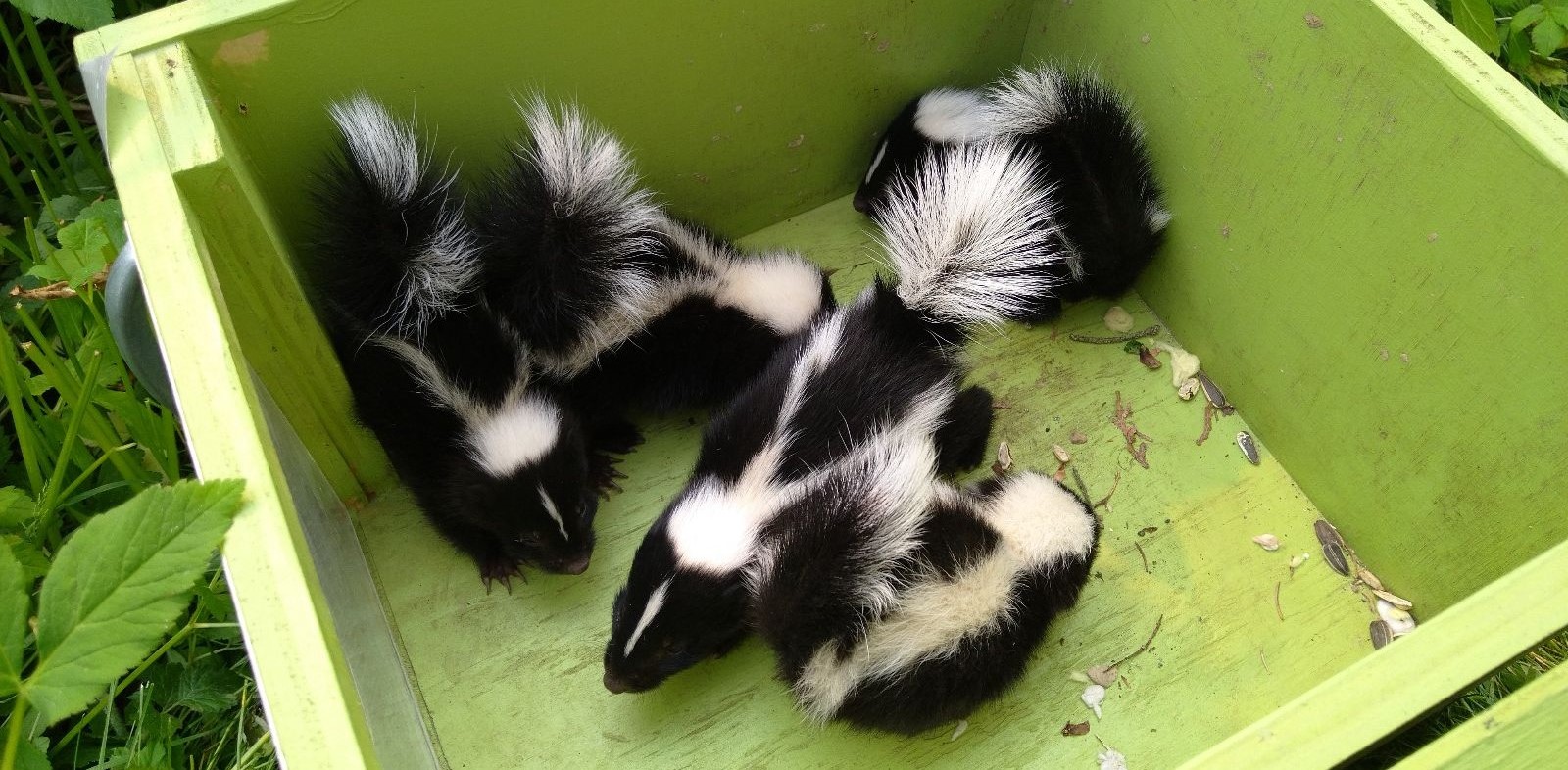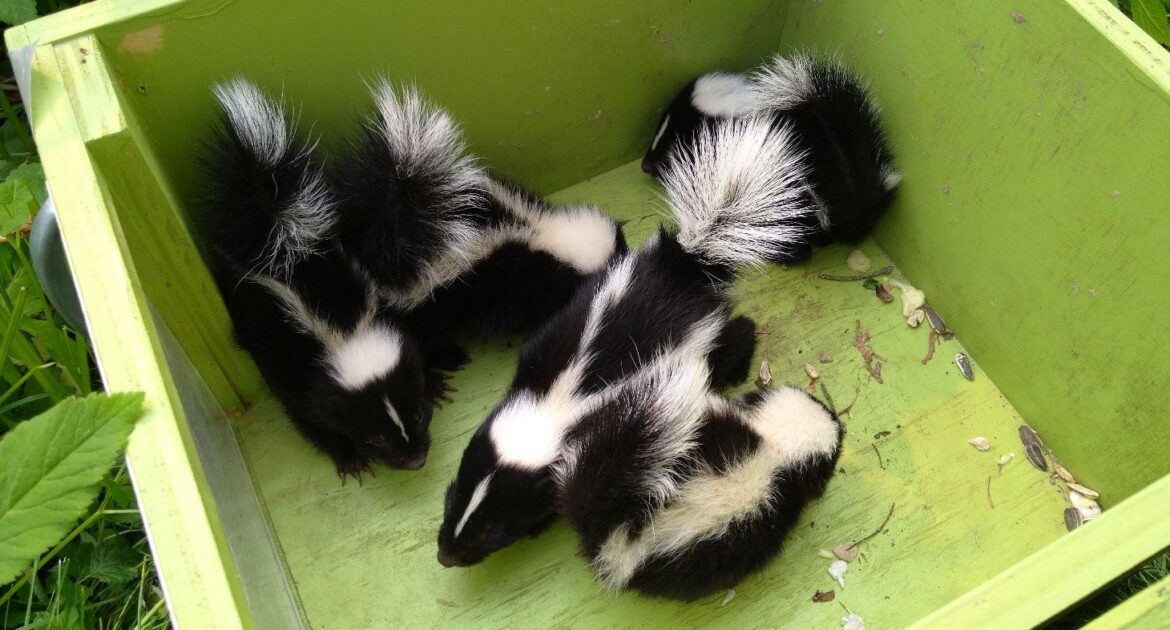When most people think of skunks, their mind immediately goes to their infamous scent. But skunks play a much more important role in ecosystems than just being known for their defensive spray. These small mammals contribute significantly to pest control by eating insects, rodents, and even larvae. Understanding what skunks eat can help people appreciate their presence, as they naturally reduce the populations of pests that can damage crops and spread disease.
Skunks also help with soil health by digging for food, which aerates the ground and promotes plant growth. However, despite their benefits, there can be times when skunks become unwelcome visitors around homes and businesses. Knowing how to keep skunks away humanely and effectively can ensure a peaceful coexistence.
Addressing their role in the environment not only highlights what are skunks good for, but also underscores the importance of responsible wildlife management. By focusing on the positive impact of skunks, we can better appreciate their place in nature and manage interactions with them more thoughtfully.
The Unsung Heroes of Pest Control
One of the most significant contributions skunks make to ecosystems is their role in pest control. Many homeowners may wonder, “What are skunks good for?” The answer lies in their diet. Skunks primarily consume insects and small rodents, which can otherwise become nuisances in and around homes. By feeding on these pests, skunks help control their populations naturally, reducing the need for chemical pesticides.
Insects like grubs, beetles, and crickets form a substantial part of a skunk’s diet. These insects can damage lawns and gardens, making skunks invaluable allies for homeowners looking to maintain their outdoor spaces. Additionally, skunks eat mice and other small rodents, which can cause structural damage to homes and pose health risks through the spread of diseases. By keeping these populations in check, skunks provide a natural pest management solution.
However, it’s essential to manage skunks’ presence around your property effectively. While their pest control abilities are beneficial, having them too close to human habitation can lead to unwanted encounters. Understanding how to keep skunks away humanely is crucial for maintaining a peaceful coexistence.
The Skunk Diet: A Balanced Approach to Nature
Understanding what skunks eat provides insights into their ecological role and how they contribute to the balance of various ecosystems. Skunks are omnivores, meaning their diet includes both plant and animal matter. This dietary flexibility allows them to adapt to different environments and seasons, making them resilient and resourceful creatures.
In addition to insects and small rodents, skunks consume a variety of fruits, vegetables, and plant material. This diverse diet helps them survive in different habitats, from forests to urban areas. During the spring and summer months, skunks primarily focus on insects and small animals, taking advantage of the abundance of food sources. In the fall and winter, when these resources become scarce, skunks shift to eating more plant material, such as berries and nuts.
This adaptability in their diet not only ensures their survival but also helps maintain ecological balance. By consuming a wide range of food sources, skunks prevent any single species from becoming too dominant. This balanced approach to their diet underscores their importance in the food web and highlights their role in promoting biodiversity.
Maintaining Ecological Balance with Skunks
Skunks are often misunderstood and under-appreciated animals, yet their contributions to maintaining ecological balance are significant. By controlling pest populations and consuming a diverse range of foods, skunks help support healthy ecosystems. Their presence indicates a functioning ecosystem where various species coexist and benefit from one another.
In agricultural settings, skunks can be particularly beneficial. Farmers often face challenges with pests that damage crops and reduce yields. Skunks, with their appetite for insects and rodents, can help mitigate these issues naturally. This reduces the need for chemical interventions, promoting more sustainable farming practices.
Urban environments also benefit from the presence of skunks. As cities expand and green spaces become limited, maintaining biodiversity becomes increasingly important. Skunks contribute to this by providing natural pest control and helping to sustain urban wildlife populations. Their ability to adapt to different environments makes them valuable contributors to both rural and urban ecosystems.
How to Keep Skunks Away Humanely
While skunks offer numerous benefits, their presence around human habitation can sometimes be problematic. It’s essential to manage their presence humanely to avoid conflicts and ensure a peaceful coexistence. One effective strategy is to eliminate food sources that attract skunks to your property. Secure trash cans, remove fallen fruit from your yard, and avoid leaving pet food outside overnight.
Another approach is to create barriers that prevent skunks from accessing certain areas. Installing fences or using mesh to block entry points can help keep skunks away from gardens and other vulnerable spots. Additionally, consider using natural deterrents like motion-activated lights or sprinklers, which can discourage skunks without causing them harm.
If skunks have already taken up residence on your property, it’s essential to address the issue humanely. Professional wildlife control services, like those offered by Skedaddle, specialize in safely and ethically removing animals from a home. These experts understand the behaviour and needs of skunks, ensuring that both the animals and homeowners are treated with respect and care.
Why Choose Skedaddle for Wildlife Control in Toronto
When dealing with wildlife around your home, choosing a professional service that prioritizes humane methods is crucial. Skedaddle Humane Wildlife Control stands out as a leader in this field, offering expertise and ethical practices that ensure the well-being of both animals and homeowners. Our approach involves comprehensive assessments and tailored solutions that address the root causes of wildlife issues.
Skedaddle does not trap or relocate wildlife. Instead, our experts use exclusion techniques that prevent animals from returning while allowing them to leave safely. This approach minimizes stress for the animals and reduces the likelihood of future conflicts. By focusing on long-term solutions, Skedaddle helps homeowners maintain a harmonious relationship with the local wildlife.
In addition to our humane methods, Skedaddle offers exceptional customer service. Our team of professionals is knowledgeable, friendly, and dedicated to providing the best possible experience for our clients. Whether you’re dealing with skunks, raccoons, or other wildlife, our experts are equipped to handle the situation with care and precision.
Our Ethical Approach
Skunks play a vital role in ecosystems, offering benefits that extend far beyond their notorious scent. Their contributions to pest control, ecological balance, and biodiversity make them valuable assets to both rural and urban environments. Understanding what skunks eat and their role in nature helps us appreciate their significance and find ways to coexist peacefully.
For homeowners dealing with skunks, adopting humane strategies to manage their presence is essential. Removing attractants, creating barriers, and seeking professional wildlife control services like Skedaddle can help ensure a harmonious relationship with these important animals.
If you’re facing wildlife issues around your home, consider reaching out to Skedaddle Humane Wildlife Control. Our ethical approach and expertise can help you address the problem effectively while respecting the well-being of the animals involved. Together, we can create a balanced and thriving environment where both humans and wildlife can coexist peacefully.




